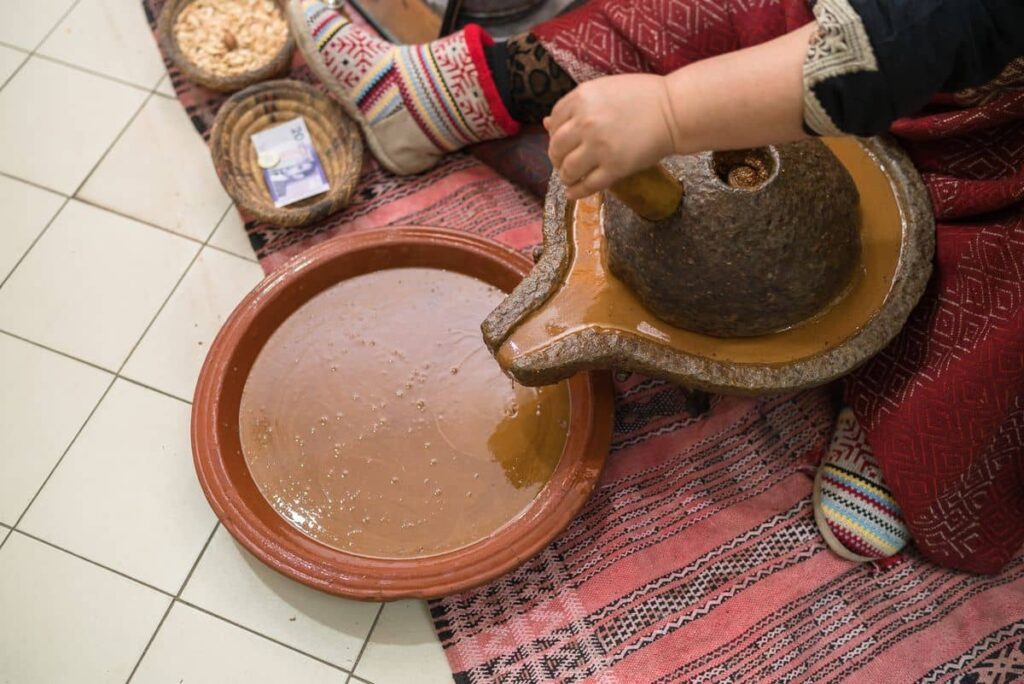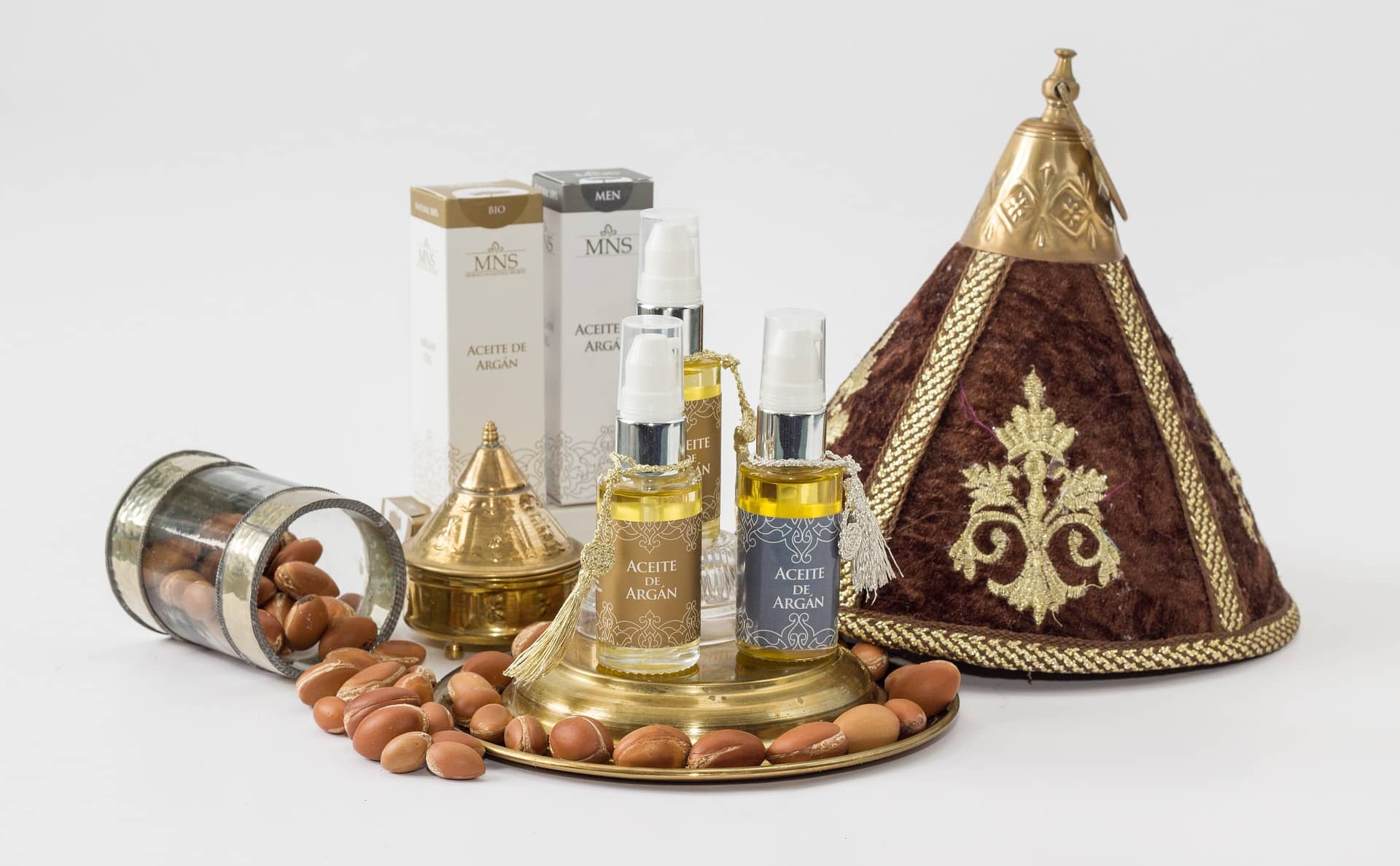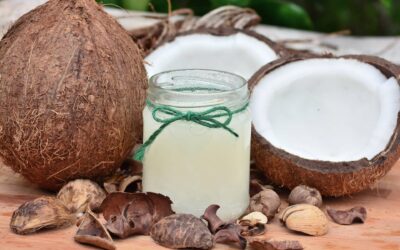As organic living is taking its trend upward, many health enthusiasts are moving towards products that are organically and naturally obtained. With this recent trend, vegetable oils are becoming mainstream and are being widely sourced for their health benefits as a rich dietary alternative and a way to eliminate the use of harmful chemicals in cosmetic products.
Today, it is common practice to spot vegetable oils in food products, cosmetic products, and argan oil is no exception. It is said if you need to improve your looks and stay healthy argan oil is the answer. The oil is considered a miracle oil, and it is making headline in the cosmetic industry as majority of the top wanted cosmetic products contain or use a certain form of argan oil.
The Origin of Argan oil.
Argan oil has been used as a culinary staple for centuries in Morocco due to its outstanding health benefits. The oil is derived from the kernels of the fruit of the argan tree which is scientifically known as the Argania Spinosa (1). Even though the argan oil is native to Morocco, the oil is now consumed worldwide for numerous cosmetic, culinary, and medicinal applications.
The edible argan oil is produced traditionally by the Berber women by crunching the roasted kernels of the Argania Spinosa fruits. With the unroasted kernels, a cosmetic grade argan oil can be obtained (2). As the oil continues to gain swift commercial success, specific standardized quality of the oil is being marketed worldwide.
Argan oil is currently considered the most expensive vegetable oil in the world. This has been partly due to its rarity and for the fact that the argan groves are realizing a shrinking effect due to unfavorable conditions. However, an initiative aimed at increasing the economical value of the argan tree is currently in progress in Morocco.
Besides, the program also stands to preserve the argan tree through the production of quality and high-grade argan oil in rural women cooperatives. There has been an improvement in production techniques and also an upgrade of the oil’s chemical and microbiological quality.
Better still, argan oil remains the most viable economic resource produced by the argan tree as of now. Its worldwide acceptance and marketing are witnessing a huge success and with this, hope is being restored for the rescue of the argan groves.
The Production Process of Argan Oil.
Traditional Production Process
The traditional preparation of argan oil is exclusively in the hands of the Moroccan women. As the ripe fruits are harvested, it goes through a process where the peel and pulp are discarded leaving the argan nuts which are seen with a similar size as a big olive.
The nuts are manually broken with stones and the kernels are collected and hand roast for a few minutes in clay plates if the end use of the oil is for dietary purposes. The roasted kernels are crushed manually using a millstone, producing a dough brownish in color which is also hand mixed with warm water for a few minutes.
The extracted wet dough is then hand pressed to release a brownish emulsion that is decanted for a few minutes to obtain the argan oil. The traditional preparation process is time consuming and for a single person to go through the entire process, starting from the collection of the fruit requires about 20 hours of work to produce just a liter of argan oil.

With the traditional preservation of the oil, the oil obtained can only last for a few weeks and the natives hold a strong belief that adding salt increases the preservation period.
However, argan oil produced traditionally comes with some shortcomings coupled with the time used in producing the oil. To avoid the time consuming peeling step, the argan fruits are given to goats that will naturally reject the peeled argan nuts through their stool. With this process, the taste can be different. Today, the use of goats for this process is being rejected.
Also, the water used is often of poor microbiological quality. With this unsatisfactory sanitary condition, the preservation time of the oil can be reduced. Notwithstanding, argan oil produced through sanitary controlled rules, traditionally prepared argan oil can be preserved for up to a year.
Extraction Process
With the extraction process, argan oil is obtained through mechanical presses which make the mixing of the dough and water widely used in the traditional method unnecessary. The argan oil is prepared by mechanically cold-pressing the argan kernels. The use of mechanical presses greatly improves the yield in oil leaving the pressed cake with less than 10% of oil.
Using the mechanical pressed method, about 4-6 liters of oil can be obtained from 100kg of dry argan kernel after 13 hours of work by a single individual (3) compared to 20 hours with the traditional method. This high yield can be justified by the replacement of the traditional hand peeling and pressing to mechanical fruit peeling and pressing.
The fruit peeling is realized using scratching machines that pull out the fruit peelings and pulp. And for the roasting process, gas roasters are used. For the quality, not much can be seen with both methods (traditional and mechanical process). The tocopherol and polyphenol content of argan oil produced traditionally and cold-pressed argan oil is very similar.
The shelf life can also be the same only if quality argan nuts are selected and the elimination of the frequent use of poor bacteriological water quality during the traditional production process.
Solvent Extraction Process.
Argan oil produced using the solvent extraction method is for industrial and laboratory purposes. The oil is obtained through a solvent extraction of crushed argan kernels. Lipophilic solvents are used to extract argan oil from pulverized kernels. After the solvent evaporation process, the argan oil can be directly obtained. The solvent extracted argan oil is sometimes flash distilled and deodorized.
It is important to note that only the cosmetics industry uses argan oil produced using the solvent extraction method. The oil is mostly used in the production of creams, body lotions, and shampoos. To compensate for the loss of natural protective compounds like tocopherols and polyphenols during the solvent extraction method, preservatives are frequently added.
The term “enriched argan oil” is best used to describe the argan oil produced through this method.
The Health Benefits of Argan Oil
The reason we stand behind these vegetable oils is due to the benefit they can provide to mankind. We strive to take the best product to the world and it is important for people to become aware of the benefits they can derive health-wise by consuming these healthy products. Even though argan oil can be very expensive in the market, people are willing to pay the price offered for the oil due to its health benefits.
Below are some of the health benefits of argan oil;
Argan Oil May Help to Boost Heart Health
Argan oil is a well-known source of oleic acid, a monosaturated omega-9 fat (4). Other oils similar to argan oil like avocado oil and olive oil, rich in oleic acids, have been able to demonstrate positive effects on a healthy heart (5). A study conducted was able to relate argan oil to olive oil in its ability to reduce the risk of diseases due to its impact on antioxidant levels in the blood (6).
Another human study was able to demonstrate a higher consumption of argan oil was linked to lower levels of bad LDL cholesterol and a higher blood level of antioxidants (7). Another study was able to show that consuming as low as 15 grams of argan oil a day for a period of say 30 days can lead to a 16 % reduction in bad LDL and a 20% reduction in triglyceride levels (8).
Argan Oil is rich in Antioxidant and Anti-inflammatory Properties
Argan oil is known to possess a series of phenolic agents which are likely responsible for the oil’s anti-inflammatory and antioxidant characteristics. Argan oil is rich in tocopherol, or vitamin E, a fat soluble vitamin with the characteristics of a potent antioxidant. These tocopherols are known to reduce the damage caused by free radicals in the system (9).
Besides, the presence of other compounds like melatonin and plant sterols also adds up to the antioxidant capacity of argan oil (10, 11).
Also, to demonstrate the anti-inflammatory potential of argan oil, the oil was fed to mice and later exposed to highly inflammatory liver toxins and a significant reduction in inflammatory markers was observed in the mice (12).
Numerous studies have also been able to show that argan oil can be applied to the skin directly to reduce inflammation caused as a result of injury and infections (13).
Rich In Healthy Fatty Acids
Argan oil is known to comprise of fatty acids and numerous phenolic compounds. Fatty acids are the building blocks of the fat in our bodies and the food we eat. Fatty acids are very essential for our digestion. In a usual digestion process, our body breaks down fats into fatty acids which are easily absorbed into the blood.
The fat content of argan oil is made up of mostly oleic and linoleic acid (13a). About 36% of the fatty acid present in argan oil comes from linoleic acid which is also known as omega-6, also a good source of healthy essential nutrients (13b).
Oleic acid which is also a healthy fat makes up about 49% of the fatty acid composition of argan oil. Oleic acid, also present in high amounts in olive oil, is well known for its positive impact on heart health (13c).
Fatty acids can also act as a store of energy. With the lack of glucose for energy, the body turns to use fatty acids to fuel our cells instead (14).
Argan Oil May Have Anti-Cancer Benefits.
The growth and reproduction of certain cancer cells may be minimized through the use of argan oil. A study was able to demonstrate how the use of polyphenolic compounds, obtained from argan oil, inhibits the growth of prostate cancer cells by about 50% (15).
Another study made use of pharmaceutical-grade argan oil and vitamin E to demonstrate an increase in the rate of cell death on breast and colon cancer cell samples (16).
Argan Oil May Help With Skin Aging
Due to the anti-aging properties of argan oil, the oil has quickly become popular agent for numerous skin care products. Some research studies have even encouraged the intake of argan oil to slow the aging process by means of reducing inflammation and oxidative stress (17).
Also, when argan oil is applied directly to the skin, it can reduce visual signs of aging as the oil may support the repair and maintenance of a healthy skin (18). Another study was able to demonstrate the usage of argan oil internally and externally on the skin can effectively increase skin elasticity and hydration in postmenopausal women (19, 20).
Other Health Benefits of Argan oil may include;
- The oils ability to treat certain skin conditions like inflammatory skin.
- The oil can be used to accelerate the wound healing process (21).
- Argan oil can be used to moisturize skin and hair due to the presence of oleic and linoleic acids found in argan oil (22).
- Argan oil is also used frequently to treat and prevent stretch marks (23).
- The oil can be used to treat and prevent acne (24)
Market Insights
The argan oil market was valued at $445.1 Million USD in 2018 and estimated to grow at a growth rate of more than 6.92 over a forecast period of 2019 to 2026. This growth rate is attributed to the huge demand for argan oil in the cosmetic industry and food industry.
Argan oil is widely preferred in skincare and hair products due to its outstanding health benefits. The personal care market is said to spur the demand for argan oil across the globe. Besides, the growing popularity of argan oil along with favorable regulatory policies in the US and Europe are likely to facilitate market entry for new players.
Europe is known to consume the majority of argan oil in the world. This high consumption in Europe is dominated mainly by product application in personal care and pharmaceutical preparations. In recent years, Europe has been fully engaged in biopharmaceutical research. Pharmaceutical companies in the region are now tapping into the benefits and potentials of argan oils for the successful production of biobased medicines. Such medications are used to fight diseases like high blood pressure, diabetes, cancer, and cardiovascular diseases.
Morocco is one of the leading exporters of argan oil in the world due to the favorable conditions for the cultivation of argan trees in the region. However, an Israeli company is developing a “super strain” known as the Argan 100, which is able to withstand the Mediterranean climate and can produce 10 times more nuts as compared to the average trees of Morocco.
Things to Consider When Importing Argan Oil
The first thing to do when importing a new product is to take some time to research the necessary information and requirements to import the product. Many importers fail to do this and they are met with regulatory complications which could have been avoided by taking some time to research.
Certain laws may govern the importation of argan oils to your country or region. Also, they might be certain requirements importing from particular countries. Certain countries may require certain nutritional parameters and labeling of the argan oil.
Secondly, do you know the market for argan oils in your area? Is there a market for argan oil in your country or city? It is of prime importance to check on the market potential of argan oil in your country. Yes, we can’t deny the fact that argan oil is gaining popularity even globally, the question is, is your market ripe for argan oils?
If you can find a market for argan oils, it is important to understand what the market actually needs. Do they require argan oil for cosmetics, pharmaceuticals, or food? As mentioned earlier argan oils are produced differently and for different purposes.
When importing argan oil you must source from reputable suppliers. Due to the global acceptance of argan oil in recent years, the market has also experienced the emergence of illegitimate suppliers with poor quality products or fake suppliers who will not even ship out your order. Take your time to study the reputation of the company and the brand.
Another important thing is to know how the oil was obtained. Does the supplier go through the best production practice to obtain the oil? Does the oil meet international standards?
Besides, it is important to pay attention to the price. Be worried and inquisitive if the price is too cheap. This can be fake argan oil. Many importers are very greedy and the fake sellers know how to use this greed to their advantage. Note, argan oil is very pricey due to the labor-intensive process of production and scarcity.
Lastly, always make sure to check the shipping conditions of the oil. It is very important to make sure the oils are packed and labeled properly. Take some time to check the shelf life of the oil, transit time, and the time period the oil will take to finally be in the hands of the consumer.




